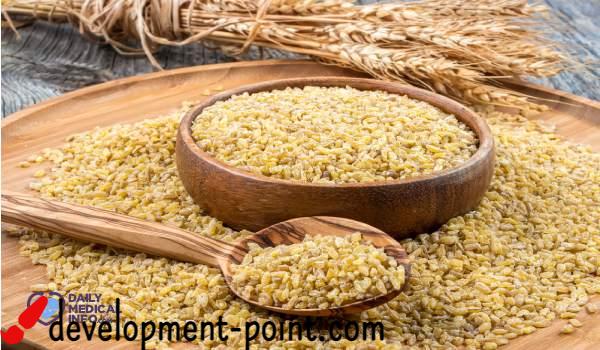Lack of stomach acid: symptoms, causes and methods of treatment
Hydrochloric acid or stomach acid is one of the most important fluids in the human body, which maintains the health of the digestive system, so a low level of stomach acid production increases digestive problems. Learn now about the symptoms of stomach acid deficiency, its causes and how to treat it.
Hydrochloric acid
HCL is a strong acid, which has a low pH level, which helps keep the stomach in a very acidic environment. The pH of the stomach should remain between 1 to 2 degrees, which helps kill pathogenic bacteria and microbes.
It is produced by stomach cells in order to maintain a healthy digestive system and protect against infection. Stomach fluids play an important role in breaking down foods that enter the human body, thus helping to absorb nutrients and remove waste from the body. This is in addition to protection against the risk of many serious health conditions such as:
- Nutrient deficiency
- Bowel leakage
- Atrophic gastritis
- stomach cancer
- pernicious anemia
Causes of low stomach acid
Hypochlorhydria is a common problem among many people, and its causes include:
- Overuse of antacids or taking them regularly in order to reduce heartburn symptoms.
- Eat a lot of processed foods.
- Suffering from chronic anxiety and stress.
- Take some types of medication, such as antibiotics.
- Pylori infection (stomach germ), which may contribute to low levels of hydrochloric acid.
- Not getting enough physical activity.
- Smoking and exposure to other toxins.
- Food intolerance (food allergy).
- Suffering from eating disorders and malnutrition.
- Follow a restrictive diet to restrict calories.
- Pregnancy and hormonal changes.
- Undergoing surgery, as some surgical procedures such as gastric bypass surgery (gastric bypass) can lead to decreased stomach acid secretion.
It is also one of the most prominent possible causes is aging or old age. It is estimated that between 30% and 40% of men and women over the age of 60 may suffer from atrophic gastritis, which means that there is little or no stomach acid secretion. This condition is more common among the elderly, over the age of 80.
Symptoms of low stomach acid
Signs of low stomach acid and not enough gastric juices may include:
- Decreased appetite
- burping
- Pain and burning (heartburn)
- upset stomach
- increased gas
- hair loss
- constipation or diarrhoea
- intestinal infections
- Undigested food in the stool
- Weak nails
- Feeling nauseous while taking nutritional supplements
- Nutrient deficiencies such as iron and vitamin B12 deficiency
How to increase stomach acid
In order to naturally balance the pH level of the stomach. You can follow some natural remedies to improve stomach acid and digestive functions. Among those treatments:
1. Apple cider vinegar
One of the benefits of organic apple cider vinegar is that it helps balance the pH in the stomach. In order to benefit from apple cider vinegar, you can get a spoonful of apple cider vinegar in a small amount of water, and drink it just before eating meals.
2. Manuka honey
Some people with a lack of stomach acid may experience an overgrowth of bacteria in the small intestine. Therefore, it may help eating honey and manuka honey alopecia in the treatment of such cases. Where New Zealand Manuka honey has antimicrobial properties. For use, you can have 1 teaspoon per day or 1 teaspoon twice a day in order to relieve symptoms.
3. Managing extreme stress
Making some lifestyle changes may help manage chronic stress in order to restore the efficiency of digestive system functions. Among those changes:
- Reducing sources of anxiety and stress.
- Do regular physical activity such as walking.
- Relaxation, such as practicing meditation, yoga or deep breathing techniques.
4. Adopt healthy eating habits
Adopting some healthy eating habits may help improve stomach acid symptoms. Such as:
- Getting rid of wrong eating habits, such as avoiding foods that are difficult to digest, such as fatty and fried foods.
- Avoid eating at least three hours before bedtime.
- Avoid lying down just before eating.
5. Treating nutritional deficiencies
In order for the stomach to produce hydrochloric acid, the body must be able to absorb zinc from the diet. Among the foods rich in zinc:
- pumpkin seeds
- cashews
- Mussels and Crab
- beef
A lack of stomach acid may also lead to a deficiency of other elements such as iron deficiency, calcium, and vitamin B12, so the doctor may recommend taking nutritional supplements, or increasing the dietary intake of these nutrients.
Medicines to increase stomach acid
1. Digestive Enzyme Capsules
Digestive enzymes help break down the nutrients that are ingested more completely. So taking 1 to 2 Digestive enzymes Caps right before a meal may help balance stomach acid levels.
However, you should not overuse digestive enzymes pills, in order to avoid any possible side effects. It is also recommended that you consult your doctor first.
2. Hydrochloric acid pills
Hydrochloric acid, along with the enzyme pepsin, helps improve metabolism. This is because in the event of a lack of stomach acid, this will lead to difficulty in digestion and the dissolution of nutrients such as protein, which can later cause a leaky gut.
So taking hydrochloric acid tablets with pepsin is one of the best nutritional supplements. Which may help improve digestive functions, and improve low stomach acid.
Notice: Hydrochloric acid supplements are not taken with pepsin, unless the diets contain protein such as chicken and beef, but if you do not eat protein, there is no need to use it. It is also recommended that you consult a specialist doctor before use.

